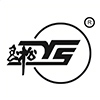As demand for plywood continues to grow, modern manufacturing requires advanced technology to handle large batches, consistently deliver high-quality results, and optimize production processes. One of the most important pieces of equipment in modern plywood manufacturing is the hot press. This industrial machine is used to apply heat and pressure to layers of wood chips and veneers to create strong, durable plywood that can be used in a variety of applications. Here are ten key advantages of using a hot press in plywood production
Video
1. High-pressure work
High-pressure hot presses operate at high pressures ranging between 50 and 120 kilograms per square centimeter (kg/cm²), depending on the type of plywood being produced. This high pressure helps to tightly compress the wood fibers, resulting in a seamless and uniform surface suitable for industrial-scale production.
2. Consistent quality
The heat and pressure applied by a hot press ensure that each piece of plywood has consistent quality regarding strength and durability. The machine can detect and adjust for any potential defects or changes in the plywood, ensuring that each sheet meets the required quality standards.
3. Customizable
Customizable plywood hot presses come in a variety of sizes and types and can be customized to specific design requirements, allowing manufacturers to produce boards of varying sizes and thicknesses. By adapting to the needs of different production equipment, the size and type of machine depends on the size of the veneers to be bonded and the throughput required.
4. Improve efficiency
Thanks to their fast hot pressing and ability to rapidly produce large quantities of top-quality plywood, production times and labor can be significantly reduced. This leads to increased productivity, shorter turnaround times, and higher profits.

5.Low maintenance cost
Durable and requiring little upkeep, hot presses lower maintenance expenses and downtimes.
6. Energy saving
Efficient energy consumption is achieved by the heat press, which consumes less energy to create the same quantity of plywood as earlier designs. As a result, they offer an environmentally beneficial alternative to conventional plywood creation techniques while decreasing their carbon imprint.
7. Environmental Benefits
The use of hot presses in plywood production reduces waste and environmental effects, facilitating eco-friendlier manufacturing processes.
8. Improve safety
Safety features built into hot press machinery safeguard employees and reduce the likelihood of mishaps. Therefore, hot presses are preferable to manual plywood fabrication procedures.
9. Wide range of uses
The versatile heat press can produce a variety of plywood products such as marine, attractive, structural, furniture making, packaging and many other applications.
10. Cost-effective
Although the initial investment may be substantial, a hot press can prove economical over the long term thanks to its quick processing capacity, personalization options, and improved productiveness.
Using hot presses in plywood production has numerous advantages and benefits that can significantly improve product quality and increase profitability in the manufacturing process. Mutian's hot plywood presses are made of steel plates and can be easily integrated into any factory floor layout without occupying too much space. We offer a variety of options to suit your needs; please contact us for further information!












